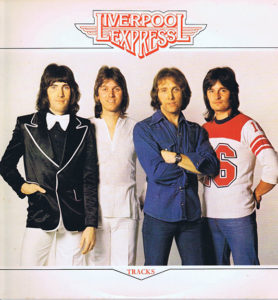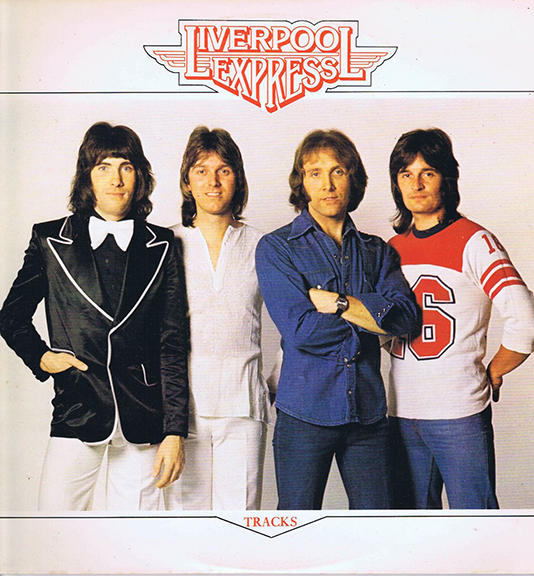Riding the Liverpool Express

In the old part of downtown Church Hill, Tennessee, I can be found among a sea of elderly ladies sorting through a mix of clothing and who-knows-what-else. The thrift store in which I work runs exclusively on donations and mostly volunteer workers, though I am lucky enough to occupy one of the paid positions. Every time a truck with a mounded truck bed backs into our parking lot, I hear the voice of Rick Harrison from Pawn Stars in my head saying, “You never know what is going to come through that door.”
When inquiring customers come inside to ask what kind of donations we accept, several of the elderly volunteers used to quote the well-known phrase, “everything but the kitchen sink.” This catch phrase was conveniently changed when the store actually received a donated kitchen sink.
In my five years of work at the thrift store, I have met a plethora of characters. The store also has its regular customers who are all known by name and often stand at the cash register to chat with the employees.
“How are your classes this semester?” one of the Saturday regulars asked me as he laid a pile of clothing across the checkout counter.
A professor himself, this particular customer had always taken an interest in my academic endeavors. He and his wife had been loyal thrift store customers longer than I had been employed. Both originally from Russia and avid travelers, they had exchanged stories with me when I came back from a study abroad trip to France and inquired about my college internships.
“Look what I found back there,” he said with a smile as he pulled a shirt sporting The Beatles’ logo from the pile. This was followed by a discussion of our respective love for The Beatles and the classic rock genre as a whole.
The following Saturday, the couple arrived at the thrift store again like clockwork, only this time the professor carried a CD in his hand.
“See what you think about this,” he said as he handed me the CD. “They were kind of in the shadow of the giants.”
The silver CD had been carefully placed inside the kind of clear plastic case that can be bought in bulk at Walmart. Neither the case nor the CD contained any identification aside from the words “Liverpool Express” written in sharpie across the reflective surface of the CD. I had no information for any of the songs, and I had not yet resorted to the black hole that is Google for information; thus, it struck me that I was in a unique situation for someone living in the era of information. I was free to simply listen to the music in an almost completely unbiased state and enjoy it for its intrinsic qualities.
As I drove home from work that evening, I was greeted by the trickle of piano trills that were soon accompanied by the light strum of a guitar. A voice similar in pitch to Paul McCartney began to softly sing the words “you are my love” in a legato, sort-of mysterious manner. It sounded as if the singer was leaning out an open window, singing his affection to someone who lived hundreds of miles away.
Even after hearing the first song, it became immediately apparent that the band had been heavily influenced by The Beatles. I found that, just as The Beatles’ songs had ranged from upbeat rock songs such as “Helter Skelter” to lyrical songs with a wide range of instrumental accompaniments like those found in “Yesterday” or “Eleanor Rigby,” so did those of Liverpool Express. For example, the group’s song that I later found to be titled “Don’t Stop the Music” has an orchestral opening that sounded especially similar to that of “Eleanor Rigby.” However, Liverpool Express seems to lean more towards the soft rock side of the spectrum with several songs that utilize primarily piano, guitar and lyrical vocals. Many of these softer songs even reminded me of the light strum of guitar employed by Bread.
As I listened, I also picked up bits of different songs here and there that tugged at blurry memories in my brain. Certain chord progressions in songs such as what I later found to be titled “Games People Play” felt so familiar, yet I couldn’t place where I had heard them. This particular song begins with vocals only accompanied by the light strum of guitar. As the song progresses, the vocalists harmonize, and several more instruments including a tambourine and a bagpipe join the accompaniment. The song’s melody seemed so familiar, but it wasn’t until several weeks later when I finally realized of what song I was being reminded. I laughed as I remembered standing next to a child dressed in a sheep costume singing “I Just Want to Be a Sheep” with my Sunday school class.
Though Liverpool Express certainly utilized popular styles, they produced several songs that I found to be remarkably unique. A song that I later found to be titled “Mary and Ann” was my favorite of the entire CD. This ballad told the story of two women who lived together in a house that was isolated from the rest of the community. The two were brutally murdered during the night. Neither woman had a single family member, so their existence seemed to be completely forgotten after their deaths. The vocalist beautifully laments these deaths, as he takes a desperate, soulful tone. His voice almost cracks a few times, and his pain is audible.
When I had listened to the CD in its entirety, I did some digging. The band does have a website, though it is not extensive and is maintained only by fans. I did, however, find a bit of the band’s history. The band was created in 1975 and comprised of Billy Kinsley, Derek Cashin, Tony Coates and Roger Scott Craig, though a few other members came and went in later years. The band was popular in several areas of the world, namely South America and Great Britain. They were even invited by Prince Charles to play at a Royal Gala Performance in 1978. In 2002, some of the original members joined with a few new ones to produce the album “Once Upon a Time.” Their music can still be heard on radio stations throughout Europe, and they still play together in venues throughout Liverpool.
I began searching for places to listen to or purchase the music in what might be considered the most obvious place to search for music—ITunes. To my surprise, only one of the band’s albums, “Once Upon a Time,” was available, and I realized immediately that it was not the same one that had played in my car. Instead of providing me with the names of the songs I had just heard, ITunes listed “You are My Love” (which I soon discovered was the band’s biggest hit) five different times and only 13 other songs.
Next, I checked Spotify only to be met with similar results. Spotify also had the album “Once Upon a Time” along with a playlist titled “The Best of Liverpool Express.” Though I found several more of the band’s songs on Spotify, I was unable to find all of the songs on my CD. I found a few more songs from my CD on YouTube. Even when I Googled the lyrics to some of the lesser-known songs, I found no results. I have since gone on a quest to find the group’s vinyl records in record stores and online.
For me, the obscurity of the band gives their music a whole other element of beauty.

